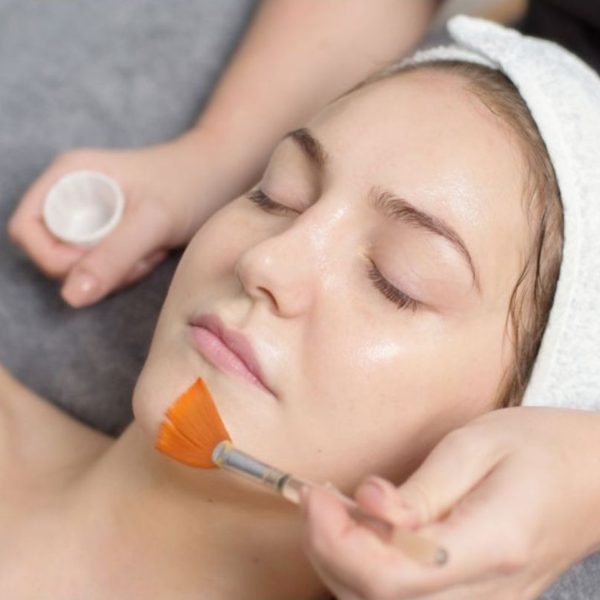
Have you ever wondered why some people have darker skin than others, or why certain areas of your skin appear darker than the rest? The answer lies in skin pigmentation. Pigmentation refers to the coloring of our skin, which is determined by a pigment called melanin. This natural substance is produced by special cells in our skin called melanocytes.
Melanin serves several important functions:
While everyone has melanin in their skin, the amount and type can vary greatly from person to person. This natural variation is what gives us the beautiful diversity of skin tones we see in the world.
The process of melanin production, known as melanogenesis, is fascinating. When our skin is exposed to sunlight, melanocytes are stimulated to produce more melanin. This is why we tan when we spend time in the sun. However, sometimes this process can go awry, leading to various pigmentation issues.
Skin pigmentation isn’t always uniform. Sometimes, certain areas of our skin can become darker or lighter than the surrounding skin. These variations are what we commonly refer to as pigmentation issues. Let’s explore some of the most common types:
Freckles are small, light brown spots that often appear on the face, arms, and shoulders. They’re more common in fair-skinned individuals and tend to become more noticeable with sun exposure. While freckles are generally harmless, they’re a sign that your skin has produced extra melanin in response to sun exposure.
Melasma is a common pigmentation issue that causes brown or grayish-brown patches, usually on the face. It’s more common in women, especially during pregnancy, which is why it’s sometimes called the “mask of pregnancy.” Melasma can be triggered by hormonal changes, sun exposure, and certain medications.
Also known as liver spots or solar lentigines, age spots are flat, brown spots that typically appear on areas of the skin that have had a lot of sun exposure over the years. Despite their name, they’re not caused by aging itself, but by cumulative sun damage.
This type of pigmentation occurs after skin injury or inflammation. It’s particularly common after acne lesions heal, leaving behind dark spots. People with darker skin tones are more prone to this type of pigmentation.
Vitiligo is a condition where melanocytes are destroyed in certain areas, leading to patches of skin with no pigment at all. These white patches can appear anywhere on the body and can be small or cover large areas.
Understanding what causes pigmentation problems is crucial in both preventing and treating them. Here are some of the most common causes:
The sun is the number one culprit when it comes to pigmentation issues. UV rays stimulate melanin production, which can lead to freckles, age spots, and worsening of conditions like melasma.
Hormonal fluctuations, particularly in women, can trigger pigmentation issues. This is why melasma is common during pregnancy and in women taking birth control pills or hormone replacement therapy.
Any kind of skin inflammation, whether from acne, eczema, or injury, can lead to post-inflammatory hyperpigmentation.
Some people are simply more prone to pigmentation issues due to their genetic makeup. If your parents have a lot of freckles or age spots, you’re more likely to develop them too.
Some medications can make your skin more sensitive to the sun or directly affect melanin production, leading to pigmentation changes.
While we can’t control all the factors that contribute to pigmentation problems, there are steps we can take to minimize their occurrence:
If you’re already dealing with pigmentation issues, don’t worry! There are many effective treatments available:
Many over-the-counter and prescription skincare products can help with pigmentation issues. Look for ingredients like:
Chemical peels involve applying a solution to the skin that causes the top layer to peel off, revealing fresher, more evenly toned skin underneath. Different strengths are available, from mild at-home peels to deeper professional treatments.
Laser treatments, such as the Fotona Pico-Laser, can be highly effective for treating pigmentation issues. These lasers target the pigmented areas without damaging the surrounding skin. The Pico-Laser, in particular, uses ultra-short pulses to shatter pigment particles, making it effective for a wide range of pigmentation issues.
Some oral supplements may help protect your skin from sun damage and pigmentation issues. Heliocare, for example, contains an extract from a fern called Polypodium leucotomos, which has been shown to have photoprotective properties. However, it’s important to note that these should be used in conjunction with, not as a replacement for, topical sun protection.
While pigmentation issues can be frustrating, it’s important to remember that some variation in skin tone is completely normal and even beautiful. Freckles, for instance, are often seen as charming and unique. Even if you choose to treat your pigmentation issues, remember that perfect, uniform skin tone isn’t necessarily the goal.
Instead, focus on overall skin health. Eat a balanced diet rich in antioxidants, stay hydrated, get enough sleep, and manage stress. These lifestyle factors can have a big impact on your skin’s appearance and health.
If you’re concerned about pigmentation changes in your skin, it’s always a good idea to consult with a Skin or Aesthetic Doctor. They can:
Remember, sudden or unusual changes in your skin should always be checked out by a professional.
Skin pigmentation is a complex and fascinating aspect of our biology. While pigmentation issues can be challenging, understanding their causes and the available treatments can help you make informed decisions about your skin care. Whether you choose to embrace your unique pigmentation or seek treatment, remember that healthy skin is beautiful skin. With the right care and protection, you can help your skin look its best, pigmentation and all.
At Dermstétiq Clinic, Dr. Tan Hui Suan and her team are committed to providing personalised care and expert advice to address a wide range of dermatological concerns. Whether it’s acne, hyperpigmentation, premature aging, or other skin issues, their comprehensive approach ensures patients receive the best possible treatments tailored to their unique needs. By staying informed and proactive about skin health, patients can achieve and maintain beautiful, healthy skin.
DSQ Elite proudly stands as the official distributor of multiple world-renowned, scientifically-proven effective skincare, haircare, and weight loss products. Our journey began with a simple yet profound commitment: s to unlock the power of cutting-edge research and technology to create products that go beyond the surface, delving deep into the science of beauty.
Call us at +65-69800878 or submit the following form to make an appointment.

© Dermstetiq Clinic Pte Ltd. All Rights Reserved 2026